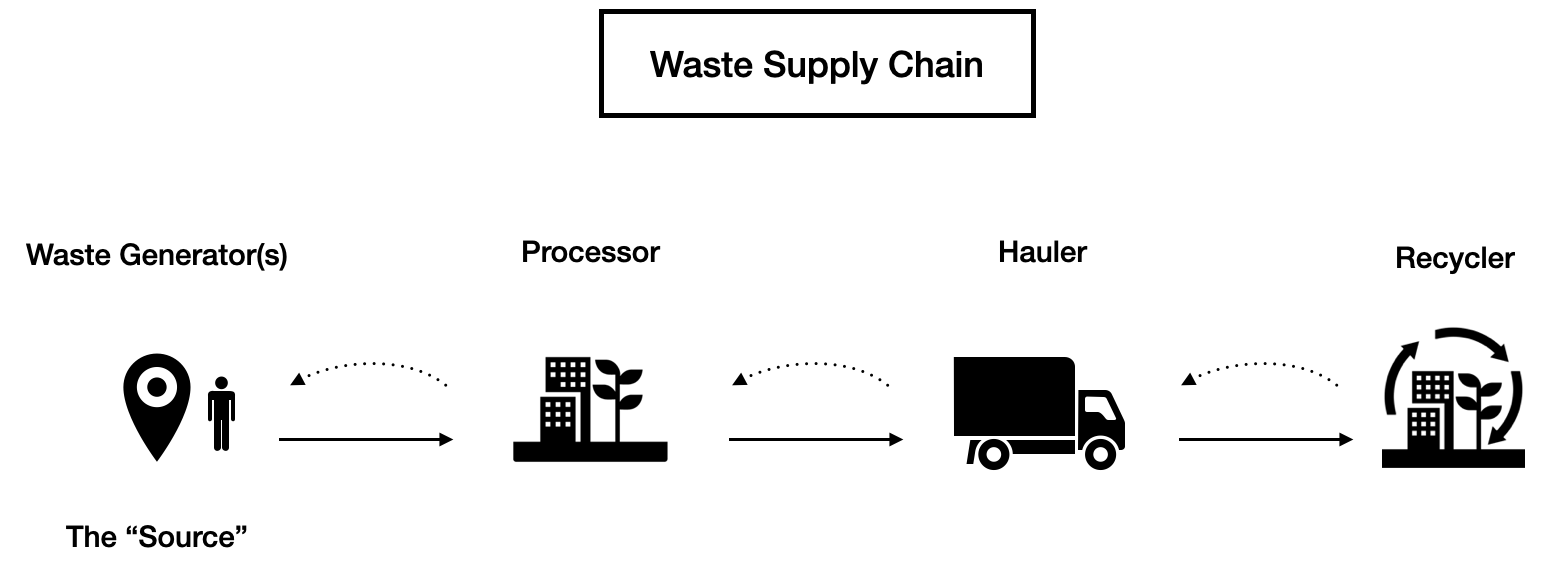Reaching the Source of Waste Creation
Fixing recycling systems requires recognizing the importance of proper waste sorting and the need to educate and incentivize participation. To accomplish this, supply chains need to be digitized and reach the waste "source.”

Sorting and cleaning mixed waste after it is contaminated is too expensive and technically complex for the great majority of locations around the world. To provide meaningful incentives for waste sorting, it is essential that Carrot’s reward system reach the Waste Generator because this stakeholder must perform the critical work of sorting and often pay for hauling and recycling. The Waste Generator needs to know its sorting work and cost are worth the effort in order to ensure that it performs the task diligently and remains integrated into the system. Certified recycling and rewards distributed in the form of stable coins, or $CARROT, provide the incentive needed to engage Waste Generators and achieve high-performance sorting, which will be explained in detail in this section.
Last updated